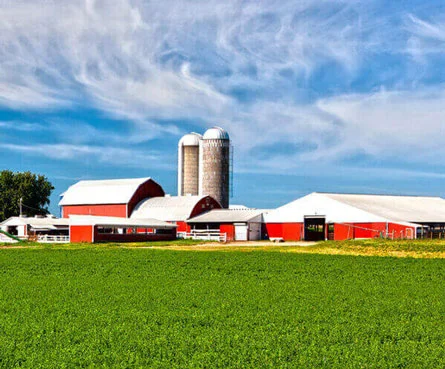Animal Care
The Canadian Poultry Industry in conjunction with veterinarians, scientists, animal welfare groups, retailers, the Humane Society, the Federal Government and processors like Exceldor/Butterball have developed a “Code of Practice” for the care and humane handling of poultry from hatchery to processing plant. Canadian turkey farmers are committed to ensuring the humane care and respectful treatment of their birds while providing wholesome and safe food to consumers.
Canadian standards for food safety and security are among the highest in the world and the Canadian turkey industry has implemented specific, science-based measures to ensure farms are on the leading edge of production with respect to food safety and quality.
To learn more about Turkey Farmers of Canada Flock Care Program©, including program management, on-farm audits and specific farm management practices, read Our Responsibility, Our Commitment: A guide to the Turkey Farmers of Canada’s On-Farm Food Safety & Flock Care Programs, or download the complete TFC On-Farm Programs Manual.
Animal Welfare:
At Exceldor Cooperative/Butterball we are committed to maintaining the health and well-being of our turkeys. We have built a dedicated PAACO (Professional Animal Auditor Certification Organization) certified team to audit our Animal Care program, through all stages from the farm to the table, to ensure compliance with our policy standards. We will strive to continuously strengthen our employee training programs and improve practices in all areas of our operations. Responsible Animal Care is central to who we are as a Company.
Cage-Free:
Butterball turkeys are grown on family farms, in safe, climate-controlled barns where they have access to fresh, clean water 24 hours a day. They are raised on a healthy, balanced diet of grains, vitamins and minerals. Like all turkeys in Canada, they are never caged and are allowed to roam freely throughout the barn.
Antibiotics:
All meat and poultry products sold in Canada are antibiotic-free. All birds go through strict veterinarian monitored withdrawal before harvesting to ensure antibiotic residues are not present. All antibiotics are evaluated by the Veterinary Drugs Directorate of Health Canada, and there is significant veterinary oversight within the turkey industry, ensuring medications are only used when appropriate.
Low levels of antibiotics have been included in livestock and poultry diets to promote digestive health and growth. These antibiotic growth promoters have been highly effective at keeping animals healthy and producing more meat, milk or eggs per pound of feed. However, there are concerns about antibiotic-resistant bacteria in animal and human populations that question the current use of antibiotics, both as a treatment for humans and as an ingredient in animal feeds. At Butterball our focus is on supporting the animal’s immune and digestive system. We are committed to the responsible use of antibiotics and are working toward removing antibiotics from the feed given to our turkeys.
Growth Hormones and GMOs:
Canadian turkeys are not given growth hormones or steroids. These drugs have been prohibited for over 30 years. Also, turkeys are not genetically modified in any manner. Advancements in breeding and selection, combined with better feed and on-farm programs are responsible for the larger, healthier and meatier turkeys raised today.
Feed:
Turkeys are omnivores which means their natural diet includes meat and vegetables. Although their feed is mainly grains (corn/wheat/soya), some animal protein is added to provide the essential nutrients turkeys require for a healthy, balanced, natural diet.


